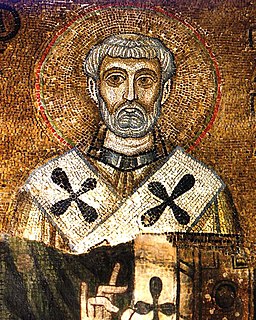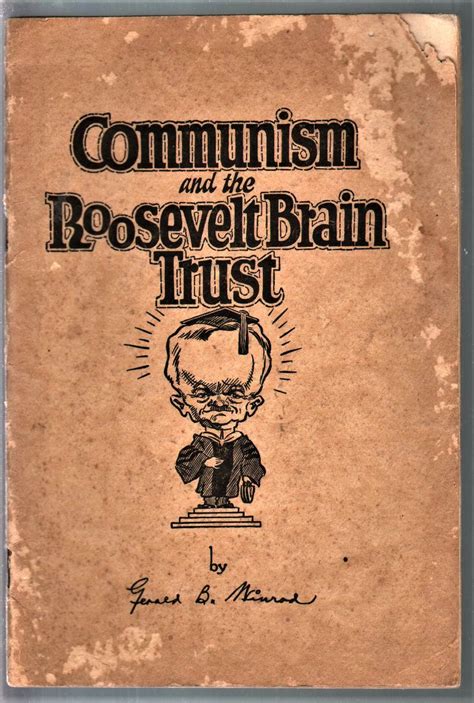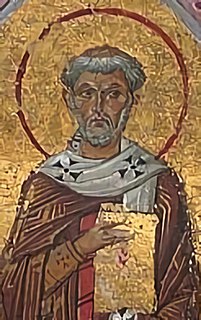A Quote by Teresa of Avila
So dearly does His Majesty love us that He will reward our love for our neighbor by increasing the love which we bear to Himself, and that in a thousand ways.
Related Quotes
We cannot know whether we love God, although there may be strong reason for thinking so; but there can be no doubt about whether we love our neighbor or not. Be sure that, in proportion as you advance in fraternal charity, you are increasing your love of God, for His Majesty bears so tender an affection for us that I cannot doubt He will repay our love for others by augmenting, and in a thousand different ways, that which we bear for Him.
Who can describe the bond of God's love? Who is able to explain the majesty of its beauty? The height to which love leads is indescribable. ... In love the master received us, Jesus Christ our Lord, in accordance with God's will gave his blood for us, and his flesh for our flesh, and his life for our lives.
The unbreakable bond between love of God and love of neighbor is emphasized. One is so closely connected to the other that to say that we love God becomes a lie if we are closed to our neighbor or hate him altogether. Saint John's words should rather be interpreted to mean that love of neighbor is a path that leads to the encounter with God, and that closing our eyes to our neighbor also blinds us to God.
The first great commandment was to love the Lord our God with all our hearts, might, mind and strength; and the second was like unto it, to love our neighbor as ourselves. And the best way in the world to show our love for our neighbor is to go forth and proclaim the gospel of the Lord Jesus Christ, of which He has given us an absolute knowledge concerning its divinity.
If someone is capable of loving his partner without restrictions, unconditionally, then he is manifesting the love of God. If the love of God becomes manifest, he will love his neighbor. If he loves his neighbor, he will love himself. If he loves himself, then everything returns to its proper place.
God’s love sets us free from the need to seek approval. Knowing that we are loved by God, accepted by God, approved by God, and that we are new creations in Christ empowers us to reject self-rejection and embrace a healthy self-love. Being secure in God’s love for us, our love for Him, and our love for ourselves, prepares us to fulfill the second greatest commandment: To love our neighbor as ourselves.
Why should we believe in God? — We hate Christianity and Christians. Even the best of them must be regarded as our worst enemies. They preach love of one's neighbor, and pity, which is contrary to our principles. Christian love is a hinderance to the revolution. Down with love of one's neighbor; what we want is hatred.
We are not taught "love thy neighbor unless their skin is a different color from yours " or "love thy neighbor unless they don't make money as you do" or "love thy neighbor unless they don't share your belies." We are taught "love thy neighbor". No exceptions. We are all in this together - every single one of us. And the only way we are going to survive as a society is through compassion. A Great Community does not mean we all think the same things or do the same things. It simply means we are willing to work together and are willing to love despite our differences.
What has the Cross left in each of us? You see, it gives us a treasure that no one else can give: the certainty of the faithful love which God has for us. A love so great that it enters into our sin and forgives it, enters into our suffering and gives us the strength to bear it. It is a love which enters into death to conquer it and save us.
Love is costly. T forgive in love costs us our sense of justice. To serve in love costs us time. To share in love costs us money. Every act of love costs us in some way, just as it cost God to love us. But we are to live a life of love just as Christ loves us and gave Himself for us at great cost to Himself.
Man depends on God for all things: God depends on man for one. Without man's love God does not exist as God, only as creator, and love is the one thing no one, not even God himself, can command. It is a free gift or it is nothing. And it is most itself, most free, when it is offered in spite of suffering, of injustice, and of death . . . The justification of the injustice of the universe is not our blind acceptance of God's inexplicable will, nor our trust in God's love, his dark and incomprehensible love, for us, but our human love, notwithstanding anything, for him.
As the world attracts us with its appearance, and abundance and variety, it is not easy to turn away from it unless in the beauty of things visible the Creator rather than the creature is loved; for, when He says, 'you shall love the Lord your God from all your heart, and from all your mind, and from all your strength' (Mt. 22:37), He wishes us in nothing to loosen ourselves from the bonds of His love. And when He links the love of our neighbor also to this command, He enjoins on us the imitation of His own goodness, that we should love what He loves and do what He does.
God will never disappoint us… If deep in our hearts we suspect that God does not love us and cannot manage our affairs as well as we can, we certainly will not submit to His discipline. …To the unbeliever the fact of suffering only convinces him that God is not to be trusted, does not love us. To the believer, the opposite is true.
Our Father awaits us with great zeal and desire, and with love He will see us returning from afar, and He will look upon us with compassionate eyes, and we shall be dear to Him, and He will fall on our neck running and embrace us and kiss us with His Holy Love. He will not reproach us, and He will no longer remember our sins and iniquities, and all the holy angles and all His elect will begin to rejoice over us.
I saw full surely that ere God made us He loved us; which love was never slacked, nor ever shall be. And in this love He hath done all His works; and in this love He hath made all things profitable to us; and in this love our life is everlasting. In our making we had beginning; but the love wherein He made us was in Him from without beginning: in which love we have our beginning. And all this shall we see in God, without end.










































